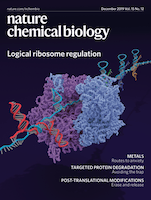
Nature Chemical Biology
Scope & Guideline
Connecting Chemistry and Biology for Groundbreaking Discoveries.
Introduction
Aims and Scopes
- Chemical Biology and Biochemistry:
The journal emphasizes studies that explore the chemical processes within and related to living organisms, including enzyme mechanisms, metabolic pathways, and the chemical basis of biological function. - Synthetic Biology and Genetic Engineering:
Research that involves the design and construction of new biological parts, devices, and systems, as well as the re-design of existing biological systems for useful purposes. - Chemical Probes and Therapeutics:
Papers focusing on the development and application of chemical probes to manipulate biological systems, as well as the design of small molecules for therapeutic applications. - Structural Biology:
The journal publishes work that elucidates the structures of biological macromolecules and complexes, contributing to our understanding of their function and interaction. - Systems Biology:
Integrative studies that combine experimental and computational approaches to understand the complexity of biological systems and their dynamics. - Interdisciplinary Approaches:
Nature Chemical Biology encourages studies that bridge different scientific disciplines, integrating chemistry, biology, physics, and engineering to address challenging biological questions.
Trending and Emerging
- Biomolecular Condensates:
Research on biomolecular condensates has surged, focusing on their roles in cellular organization and function, reflecting a growing interest in understanding phase separation in biological systems. - CRISPR and Genome Editing Technologies:
The journal has seen an increase in papers related to CRISPR technologies, including advancements in gene editing, base editing, and their applications in therapeutic contexts. - Machine Learning and AI in Drug Discovery:
There is a growing trend towards utilizing machine learning and artificial intelligence to enhance drug discovery processes, optimize chemical libraries, and predict biological activity. - Targeted Protein Degradation:
Research on targeted protein degradation techniques, such as PROTACs, has gained momentum, reflecting the interest in developing new therapeutic modalities that harness the cellular degradation machinery. - Sustainable Chemistry and Biocatalysis:
Emerging themes in sustainable chemistry, including the use of biocatalysis and environmentally friendly synthetic methods, are increasingly highlighted as researchers seek greener solutions to chemical problems.
Declining or Waning
- Traditional Medicinal Chemistry:
There has been a noticeable decline in papers focused solely on traditional medicinal chemistry methods, as the field shifts towards more integrated approaches involving chemical biology and systems biology. - Basic Biochemical Pathway Studies:
Research that explores basic biochemical pathways without a clear application or link to broader biological implications is becoming less common, with more emphasis now on translational applications. - Single-Cell Analysis Techniques:
While still relevant, the volume of papers focusing exclusively on single-cell analysis has decreased, possibly due to the rising prominence of more comprehensive systems biology approaches that integrate multiple data types.
Similar Journals

COMPUTATIONAL BIOLOGY AND CHEMISTRY
Bridging Disciplines: Where Computational Biology Meets ChemistryCOMPUTATIONAL BIOLOGY AND CHEMISTRY is a distinguished academic journal published by Elsevier Science Ltd, focusing on the dynamic intersection of computational biology, biochemistry, and chemistry. With an ISSN of 1476-9271 and an E-ISSN of 1476-928X, this journal is committed to disseminating high-quality research that employs computational techniques to solve complex biological and chemical problems. As of 2023, the journal holds a substantial impact factor reflecting its significance and rigorous peer-review process, categorized in the Q2 quartile for both Computational Mathematics and Organic Chemistry, alongside Q3 classifications in Biochemistry and Structural Biology. With a continuous publication history spanning from 2003 to 2024, it serves as a critical resource for researchers, professionals, and students alike. The journal offers various open access options, ensuring that vital research findings are accessible to a global audience, further enhancing collaboration across disciplines. Engage with cutting-edge studies and contribute to the evolving landscape of computational methodologies in the life sciences through this esteemed publication.

International Journal of Biology and Chemistry
Catalyzing Scientific Progress Across Biological and Chemical RealmsInternational Journal of Biology and Chemistry (ISSN: 2218-7979; E-ISSN: 2409-370X) is a distinguished peer-reviewed journal published by AL-FARABI KAZAKH NATIONAL UNIVERSITY, dedicated to advancing the interdisciplinary fields of biology and chemistry. This journal aims to foster a comprehensive understanding of biological systems and chemical processes, thereby promoting collaborative research and innovative methodologies. With a rigorous selection process and commitment to quality, the journal provides a platform for original research articles, reviews, and case studies that contribute to the scientific community's knowledge base. Although specific metrics such as H-Index and Scopus rankings are currently not listed, the journal continues to be an important resource for researchers, professionals, and students alike. By providing open access to high-quality research outputs, the International Journal of Biology and Chemistry is poised to make a significant impact in its field, bridging gaps between biological sciences and chemistry while encouraging groundbreaking discoveries.
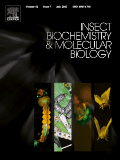
INSECT BIOCHEMISTRY AND MOLECULAR BIOLOGY
Fostering Interdisciplinary Research in Insect BiologyINSECT BIOCHEMISTRY AND MOLECULAR BIOLOGY, published by Pergamon-Elsevier Science Ltd, stands at the forefront of interdisciplinary research focusing on the biochemical and molecular processes in insects. This esteemed journal, with an ISSN of 0965-1748 and E-ISSN of 1879-0240, serves as a vital resource for scientists and researchers interested in the intricacies of insect physiology and genetics. With a significant presence in the academic community, it holds impressive rankings, including Q2 in Biochemistry and Q1 in Insect Science according to the latest quartiles, reflecting its critical role in advancing knowledge in these fields. The journal's convergence of content from 1992 to 2024 illustrates its commitment to fostering long-term scholarly discourse. Researchers will appreciate its impact within the Agricultural and Biological Sciences and its contributions to understanding the molecular biology of insects. Although not an open-access journal, it provides complementary insights into the biochemistry and genetics of insects, making it indispensable for anyone keen on pushing the boundaries of entomological science.
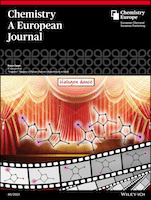
CHEMISTRY-A EUROPEAN JOURNAL
Leading the Charge in European Chemical ScienceCHEMISTRY-A EUROPEAN JOURNAL is a premier academic journal published by WILEY-V C H VERLAG GMBH, specializing in the diverse fields of chemistry and catalysis, with a distinguished focus on organic chemistry. Since its inception in 1995, the journal has established itself as an authoritative resource for researchers and professionals, currently classified in Q1 in Chemistry (miscellaneous) and Organic Chemistry, reflecting its high-quality contributions to the scientific community. With an impressive impact factor and robust Scopus rankings—#33 in Organic Chemistry and #26 in Catalysis—this journal serves as a vital platform for disseminating innovative research findings and critical advancements in chemical sciences. Although not an open-access journal, it provides valuable access options for institutions, ensuring wide reach and engagement within the scientific community. As it converges into 2024, CHEMISTRY-A EUROPEAN JOURNAL remains a key resource for anyone dedicated to advancing the frontiers of chemistry research.
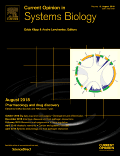
Current Opinion in Systems Biology
Elevating research standards in applied mathematics and biochemistry.Current Opinion in Systems Biology is an esteemed academic journal published by ELSEVIER, focusing on the dynamic and interdisciplinary field of systems biology. Since its inception in 2017, the journal has made significant strides in disseminating cutting-edge research and innovative perspectives across various domains, including applied mathematics, biochemistry, and drug discovery. With an impressive impact factor reflecting its prominent position as a Q1 journal in multiple categories—including Applied Mathematics, Biochemistry, and Computer Science Applications—it serves as a vital resource for researchers, professionals, and students alike. The journal embraces a comprehensive approach to understanding complex biological systems, fostering a deeper insight into the interactions within biological and computational frameworks. This makes it an essential conduit for advancing knowledge and innovation in systems biology, facilitating the development of new methodologies that could lead to groundbreaking discoveries.
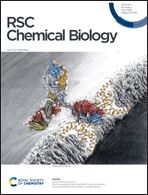
RSC Chemical Biology
Unlocking the Secrets of Life Through Rigorous ResearchRSC Chemical Biology is a prestigious journal published by the Royal Society of Chemistry, providing a significant platform for researchers in the fields of biochemistry, genetics, and molecular biology. Launched in 2020, the journal aims to disseminate high-quality research that bridges the gap between chemistry and biology, promoting interdisciplinary studies and innovations that are essential for advancements in life sciences. With an emerging impact factor and ranking in the top quartile (Q1) for multiple categories such as Biochemistry and Molecular Biology, RSC Chemical Biology holds a prominent position in the academic landscape, evidenced by its Scopus rankings placing it in the top 20% and 30% of its respective fields. Although it does not operate under an open-access model, the journal's commitment to accessibility is reflected in its rigorous peer-review process and its role in shaping future scientific discourse. Research published in this journal is vital for contributing to our understanding of complex biological processes and fostering innovations that can lead to real-world applications.

Molecular Systems Design & Engineering
Pioneering Research at the Intersection of Chemistry and EngineeringMolecular Systems Design & Engineering, published by the esteemed Royal Society of Chemistry, stands at the forefront of interdisciplinary research focused on the integration of molecular systems and engineering principles. With its ISSN 2058-9689 and a robust impact within various scientific domains, this journal not only facilitates the advancement of knowledge in fields such as Biomedical Engineering, Chemical Engineering, and Materials Chemistry, but also fosters collaborative innovations that address contemporary challenges in energy and manufacturing processes. Its recent rankings, including Q1 categorization in Critical areas of Chemical Engineering and Materials Chemistry, underscore its significance and influence within the scientific community, making it a vital resource for researchers, professionals, and students alike. Access options are available to meet diverse reader needs, encouraging wider dissemination of groundbreaking findings and methodologies that enhance the design and application of molecular systems.

EGYPTIAN JOURNAL OF CHEMISTRY
Empowering Researchers with Cutting-Edge Chemical KnowledgeThe Egyptian Journal of Chemistry, published by the National Information & Documentation Centre (NIDOC), serves as a vital platform for disseminating novel research and advancements in the field of chemistry and its interdisciplinary applications. Established in 2004 and continuing its publication through 2024, this journal encapsulates a diverse range of topics including Biochemistry, Chemical Engineering, and Materials Science, reflected in its respectable Scopus rankings. With an array of Quartile rankings indicating its varying impact across different categories, scholars can benefit from its insights into innovative solutions and methodologies that address pressing scientific challenges. Although it currently does not operate under an open access model, researchers and students are encouraged to leverage its findings as it plays a pivotal role in the academic landscape of Egypt and beyond. For those engaged in chemical research, the Egyptian Journal of Chemistry stands as an essential resource, contributing significantly to the global body of scientific knowledge.
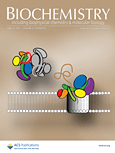
BIOCHEMISTRY
Advancing biochemical knowledge for a deeper understanding of life.BIOCHEMISTRY is a premier academic journal published by the American Chemical Society, dedicated to advancing the field of biochemistry through the dissemination of high-quality research. With an ISSN of 0006-2960 and an e-ISSN of 1520-4995, this esteemed publication has been a vital resource since its inception in 1962 and continues to contribute to the scientific community, boasting a remarkable Q1 ranking in the field as of 2023. The journal's well-curated content emphasizes fundamental biochemical research, molecular genetics, and innovations in biochemical techniques, catering to a diverse audience of researchers, professionals, and students. Although not an open-access publication, BIOCHEMISTRY plays a crucial role in facilitating knowledge exchange and fostering academic collaboration globally, making significant contributions to the understanding of the biochemical processes that underpin life.

Annual Review of Biochemistry
Your Essential Resource for Biochemical AdvancesAnnual Review of Biochemistry is a premier publication in the field of biochemistry, renowned for its comprehensive and critical reviews that collate significant advancements and insights since its inception in 1946. Published by Annual Reviews in the United States, this journal maintains a prestigious position within the academic community, boasting a Q1 ranking in the biochemistry category for 2023, with an impressive Scopus rank of #4 out of 438, placing it in the top 1% of its field. With a commitment to excellence, it serves as an essential resource for researchers, professionals, and students striving to stay at the forefront of biochemical research. While the journal does not operate on an open-access model, it continues to provide key insights and knowledge that fuel innovation and discovery in the life sciences. As it converges research from various eras up to 2024, Annual Review of Biochemistry remains a vital contributor to the development of molecular biology and genetics, catering to the needs of a diverse readership keen on advancing their understanding and expertise in biochemistry.